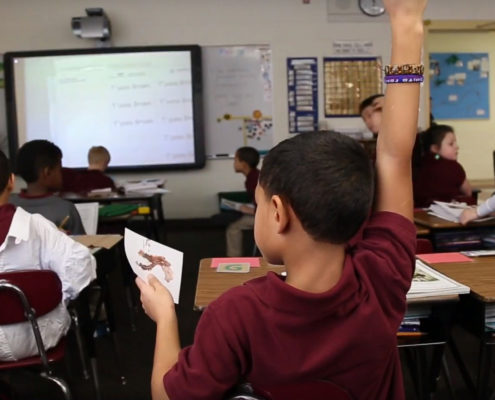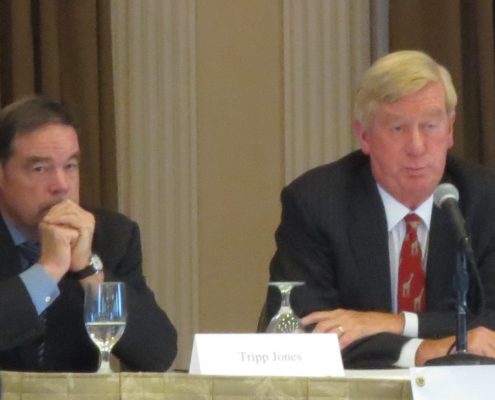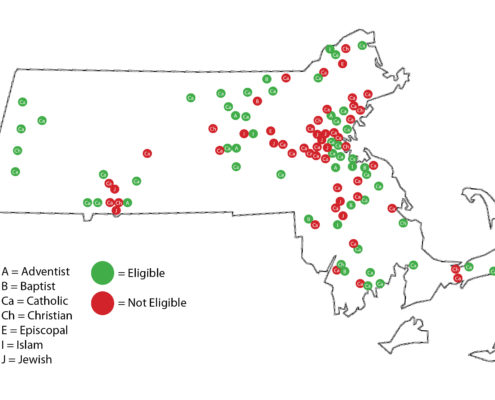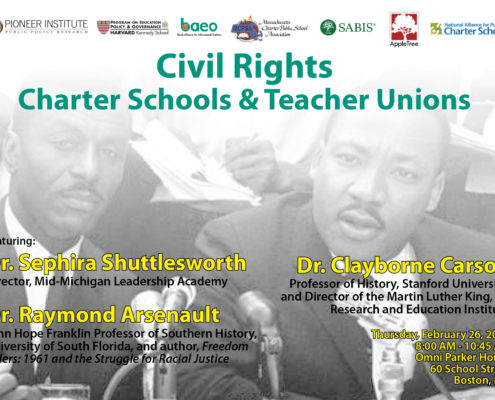Press Release: Pioneer Files Amicus Brief on Behalf of Plaintiffs in Boston Charter School Case
Joins with Black Alliance for Educational Options and Cheryl Brown Henderson to argue that case should be allowed to proceed to discovery
BOSTON — Through its public interest law initiative PioneerLegal, Pioneer Institute has filed an amicus brief in an important case about public education that will be argued today before Massachusetts’ Supreme Judicial Court (SJC).
In 2015, five Boston Public School students who did not win lotteries for admission to charter public schools and were relegated to failing district schools brought suit, asserting that they were denied equal protection and the right to an adequate public education as guaranteed by the Massachusetts Constitution. The trial court dismissed the suit, and the appeal is before the state’s highest court.
Pioneer was joined on the brief by the Black Alliance for Educational Options and Cheryl Brown Henderson – daughter of the late Rev. Oliver L. Brown, who is the named plaintiff in the U.S. Supreme Court’s landmark Brown vs. Board of Education case.
“The plaintiffs have at the very least made a case that entitles them to seek evidence from the Commonwealth and the City of Boston that they may use to prove their claims,” said PioneerLegal Senior Fellow in Law & Public Policy John Sivolella.
In dismissing the case without discovery, the trial court judge ruled that the state need not come forward with any evidence to show why it has chosen to limit charter school seats in Boston, and relegate the plaintiff school children to inadequate schools.
The plaintiffs allege that the schools to which they were assigned have failed to provide them with an education that qualifies as adequate under the Massachusetts Constitution, that 20 years of results from Boston charter schools demonstrate that charters unquestionably provide an education that meets the constitutional standard, and that the status quo is neither rational nor responsive to the problem.
Three of the plaintiffs attend so-called Level 3 schools, which are in the bottom 20 percent compared to their peers. Two more attend Level 4 schools. Schools in Levels 4 and 5 are in the bottom 4 percent of schools statewide. The Boston Public Schools were designated as a Level 4 district in 2010, the year the current system for measuring school performance was adopted, and have remained there every year since.
The pace of improvement in Boston has been painfully slow. The percentage of students scoring proficient in state English language arts testing rose from 46 percent in 2010 to 49 percent in 2014. At that rate it will take another 30 years before Boston Public Schools match the current statewide level of proficiency.
By contrast, the success of the city’s charter schools has been striking. Stanford University’s Center for Research on Education Outcomes, which studies charter school performance nationwide, found that the improvement in math and reading scores in Boston charters was the largest they have seen.
The Brookings Institution described the test score gains produced by Boston charters as some of the largest ever documented for an at-scale educational intervention and found that those gains were particularly large for disadvantaged students.
A Harvard study found that “oversubscribed charter schools in the Boston area are closing one half of the Black-White achievement gap in math… in a single year.”
Not surprisingly, applications to Boston charter schools more than doubled for the 2017-18 school year, shattering previous records.
“Imagine if the state developed a treatment that addressed what had previously been incurable health problems affecting children in state care, but then denied that treatment to children in underprivileged areas,” said Pioneer Institute Executive Director Jim Stergios. “That would be unthinkable. And yet we are doing the very same thing by allowing Boston children to languish in failing district schools, even while next door charters provide a demonstrably superior education.”
The SJC has ruled in the past that the Commonwealth’s elected officials have an affirmative obligation to devise a plan and identify funding sources sufficient to ensure the Massachusetts Constitution’s adequate education mandate.
If the appeal is successful, the case will be remanded to the trial court to begin discovery. And the Commonwealth will be required to come forward with a rational explanation, supported by evidence rather than rhetoric, for limiting available charter seats while school children like the plaintiffs are left behind in underperforming district schools.
Pioneer Institute and PioneerLegal
Pioneer Institute, Inc. (“Pioneer”) is an independent, non-partisan, privately funded research organization that seeks to improve the quality of life in Massachusetts through civic discourse and intellectually rigorous, data-driven public policy solutions based on free market principles, individual liberty and responsibility, and the ideal of effective, limited and accountable government.
Pioneer focuses on achieving policy goals in four issue areas: expanding access to high-performing schools; increasing affordable, high-quality healthcare options; ensuring that government services are efficient, accountable and transparent; and growing prosperity and economic opportunity.
PioneerLegal, as the public-interest law initiative of Pioneer, utilizes a legal-based approach to work to change policies that adversely affect the public interest in Pioneer’s core policy areas. PioneerLegal’s substantive work is consistent with the mission of Pioneer as it clearly develops and promotes its brand as a public-interest law initiative.
Get Updates on Our Charter Schools Initiative
Related Research



















